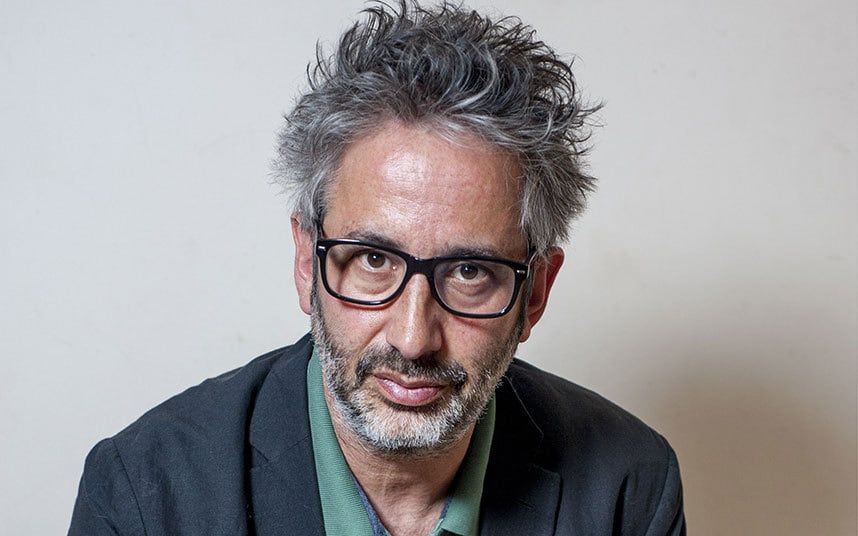Australia/Israel Review
Biblio File: Learning to Count
Jul 2, 2021 | Colin Schindler

 Jews Don’t Count
Jews Don’t Count
by David Baddiel, TLS Books, 2021, 131 pp.; $17.99
David Baddiel is well-known in Britain as a comedian and a writer. He is also unusual – in that he does not shy away from his Jewishness in his stage routine, but actually glories in his identity. The grandson of disenfranchised, well-to-do, Jewish business-people who escaped Nazi Germany in 1939, his Twitter biography is just one word: “Jew.” Yet he occupies the no man’s land between conventional “Jewish” and acculturated “Jew-ish” in the UK arts world.
His short account of his angst, Jews Don’t Count, is more a stream of consciousness than an ordered analysis, yet it has rudely awoken many non-Jews in Britain from their slumbering perception of Jews.
As the title of this book suggests, Jews don’t really count today in the hierarchy of racisms. It is acceptable to interpret the antisemitism of the poet TS Eliot as art and to condemn Charles Dickens’s antipathy toward the Indian Mutiny of 1857 as racist.
Baddiel is scathing about many on the Left who regard themselves as being “on the right side of history,” those who express solidarity with Jews fighting the British Union of Fascists in 1936, but are silent when it comes to anti-Jewish comments in 2021.
Jews are often seen, Baddiel argues, as white and wealthy – and therefore Jewish concerns today are unimportant. The far-left in Britain first submerged antisemitism, then marginalised it to make it invisible, and finally airbrushed it out of existence.
Former UK Labor leader Jeremy Corbyn’s initial perception of an antisemitic mural was that it was anti-capitalist before understanding it was anti-Jewish. Baddiel points out that Corbyn did not realise that it could easily have featured as the cover of an edition of the Protocols of the Elders of Zion.
Anti-Jewishness in the UK is also rooted in ignorance about the travails of Jewish history. The media are responsible in part, since they are unable to come to grips with the complexity of Jewishness. It is easier to depict oy-vey plastic Jews than the real thing.
Moreover, pandemic lockdowns have helped to proliferate conspiracy theories on social media that allude to all-powerful elites.
Jews do not fit into conventional theory. Hence the very idea that Jews should be included in BAME organisations (Black, Asian and Minority Ethnic) is perplexing and unnerving. The suggestion that the Jews could be considered a nation in exile is unfathomable.
Yet white nationalists consider Jews to be “Asiatics.” At Charlottesville in 2017, young men led a torch-lit parade, chanting, “Jews will not replace us.” However, anti-Jewish animus can cross the race barrier. Baddiel quotes Malcom X in the 1960s:
“But let’s not forget the Jew. Anybody that gives even a just criticism of the Jew is instantly labelled antisemite. The Jew cries louder than anybody else.”
In 1883, Moses Lilienblum wrote an essay of contrasts:
“The liberals say we are conservative and the conservatives call us liberals. The opponents of nationalism see us as uncompromising nationalists while the nationalists see us as cosmopolitans.”
Lilienblum’s assault on the European intelligentsia and his fatalism at confronting antisemitism led him to embrace Zionism. His “can’t win” syndrome has not faded even after the tragedies of the previous century.
This is not Baddiel’s approach. For him, Israel is a far-off country that is mentioned only in the context of the far-left’s shenanigans about British Jews being responsible for Binyamin Netanyahu’s policies. His Jewish identity emerges from attending a Jewish primary school but, as he readily admits, it has been reduced today to pickled herring, Seinfeld and Groucho Marx – and the handed-down family memory of the persecuted and the murdered.
In this book, Baddiel acts the part of a literary rodeo star, trying to lasso an unruly steer. It merges with his stand-up routine – a fast talking, blunderbuss attack on antisemitic superficiality. The book has achieved remarkable publicity and succeeded where conventional approaches have fallen flat.
Jews Don’t Count also provides a hint that Baddiel is on his own journey to understand why things are like they are. This will not be the last time we hear from him.
Dr. Colin Schindler is an emeritus professor of Israel Studies, SOAS, University of London. © Jerusalem Post (www.jpost.com), reprinted by permission, all rights reserved.
Tags: Antisemitism, Israel, United Kingdom






